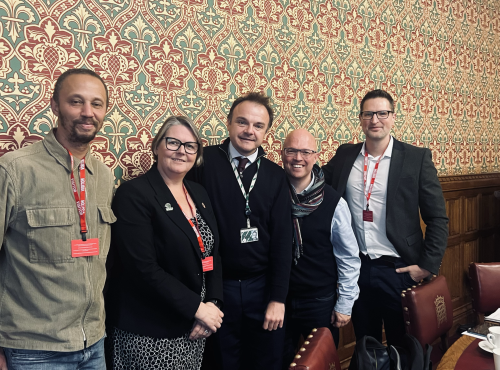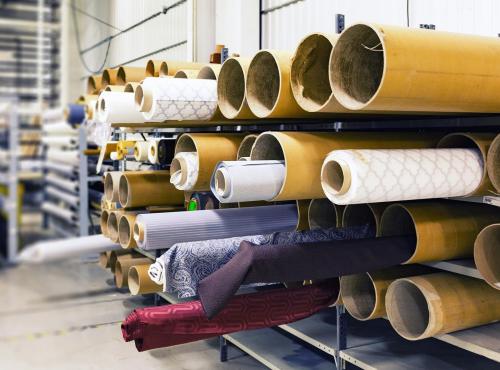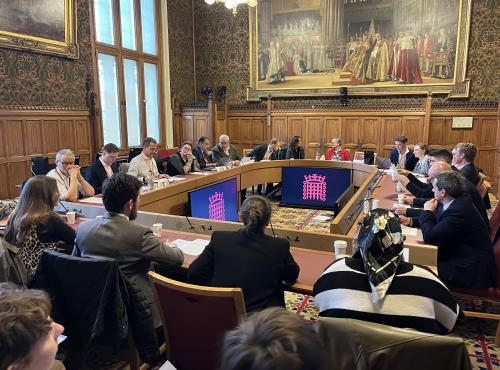How can innovative technologies improve recycling?
That was the question posed at Policy Connect’s recent roundtable chaired by Alex Sobel MP (Shadow Minister for Nature Recovery and the Domestic Environment), with participants from industry, government and academia.
Reuse, refill and repair are, of course, preferable to recycling where possible as they are often more carbon efficient. However, there remain certain types of waste where these solutions are not enough to keep materials out of landfill.
In these cases, new recycling technologies have a critical role to play.
The roundtable considered how new technologies can help recycling emit less carbon and use fewer resources. For instance, one participant discussed using artificial intelligence to understand the composition of waste to make the best of use all recyclable materials.
Participants also discussed how new technologies can help to recycle a wider range of materials. Composite designs, like crisp packets, pose a particular challenge for recycling, as do potentially dangerous materials such as chemicals and hygiene products, like nappies.
The roundtable heard from a participant whose business turns asbestos into an asbestos-free cement replacement material. If all the asbestos currently locked up in buildings were removed, there would not be enough space in landfills to bury it. It is therefore essential to find technical solutions that avoid it going to landfill while removing the asbestos. Turning it into a material that replaces cement also has the advantage of reducing the carbon emissions from an otherwise energy- and carbon-intensive process.
This business also faces a challenge that many roundtable participants reported. While innovative technologies do exist in the UK, it can be very difficult to scale these from a single company to a national enterprise. This is due to a lack of infrastructure, which requires investment.
The Plastic Packaging Tax, coming into force 1 April 2022, was cited as an example of a financial tool that had a real impact on the sector.
The tax sent a clear signal from government that encouraging plastic recycling is an established, long-term policy goal. Since the tax was announced a year ago, the price of plastic has significantly increased making it more valuable to recycle and, hopefully, to buy. The tax also showed investors that plastic recycling is a stable and viable business route.
It will, of course, never be possible to deal with all waste through reuse, refill and repair so recycling will continue to play a critical role in achieving a circular economy. As ever, the answer lies in maximising the options – and that’s where the many examples from industry will play a critical role.
This roundtable was hosted by the All-Party Parliamentary Sustainable Resource Group and Sustainable Resource Group, in partnership with Imperial College London. For more information about the APSRG, please visit our website: https://www.policyconnect.org.uk/apsrg.



